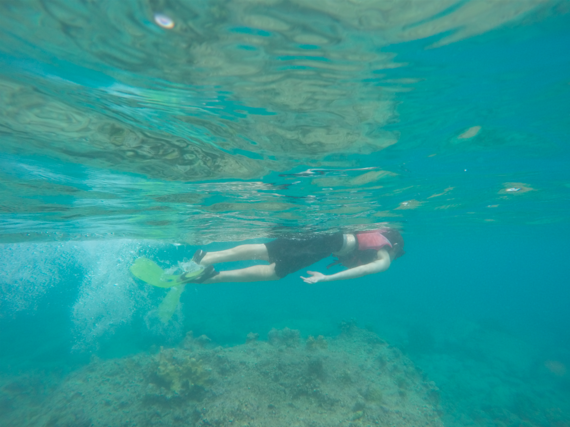About 25% of the world's fish (over 4,000 species!) live on coral reefs, and they provide more than 450 million people with food and income. Reefs create islands through the accumulation of sand and sediment, providing homes to people, birds, and turtles, as well as shelter so that delicate seagrass beds and mangrove habitats can thrive.
Yet coral reefs are dying. Already, our planet has lost 27% of this important ocean ecosystem. If present rates of destruction are allowed to continue, 60% of the world's coral reefs will be destroyed over the next 30 years. This would be disastrous, and not only for ocean life. In poor communities, fishing over reefs provides about 50% of the household income to women, making the protection of reefs not only an issue of conservation of biodiversity, but also one of gender equality.
The Advice Project believes that one of the best way to help youth appreciate the special places we need to protect is to visit them. This is why we held our 2015 Advice Project Global Leadership and Empowerment Summit this past summer in the Peruvian rainforest, as well as why we've chosen to host our second summit this coming summer in Ireland. It's also why yesterday, The Advice Project visited Jacques Cousteau's Underwater Reserve in Malendure, Guadeloupe. A part of the National Park of Guadeloupe, this marine area covers over 400 hectacres of protected coral reef and Pigeon Islets. There, our students swam over the reefs to observe many species of sea snakes and fish, and they learned a little about how this delicate ecosystem is at risk of dying due to the effects of climate change.
We believe that our teens will return home with a new appreciation for the exquisite beauty of coral reefs, and we also hope that their experience will help them become more vocal about the importance of maintaining the rich biodiversity in our oceans - both for the health of our planet as a whole, and also so that vulnerable people - women in particular - won't feel the deleterious economic effects of climate change.
___________________________________________________________________
Originally posted at The Advice Project by Melissa Banigan. Visit original post to watch a video of the beautiful Jacques Cousteau Underwater Reserve.
